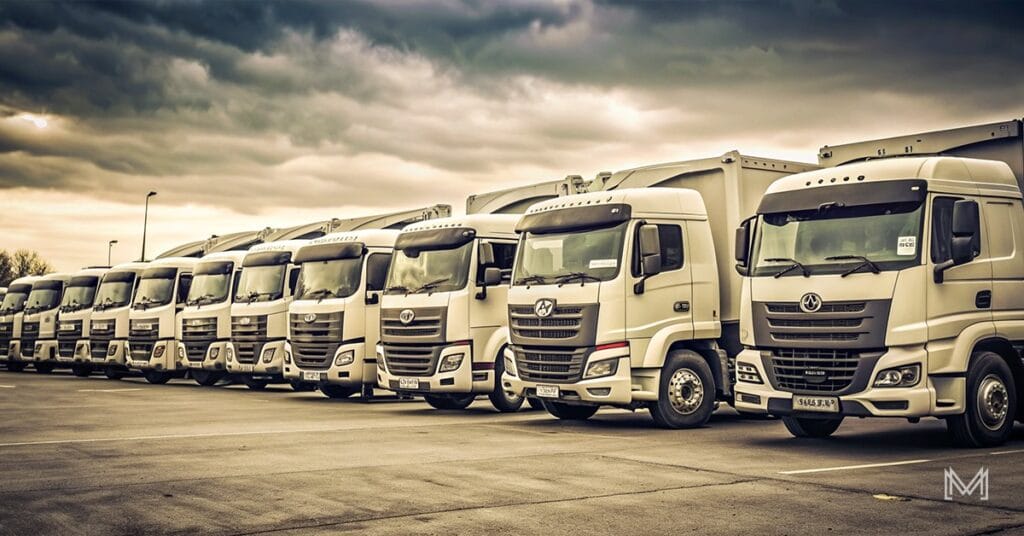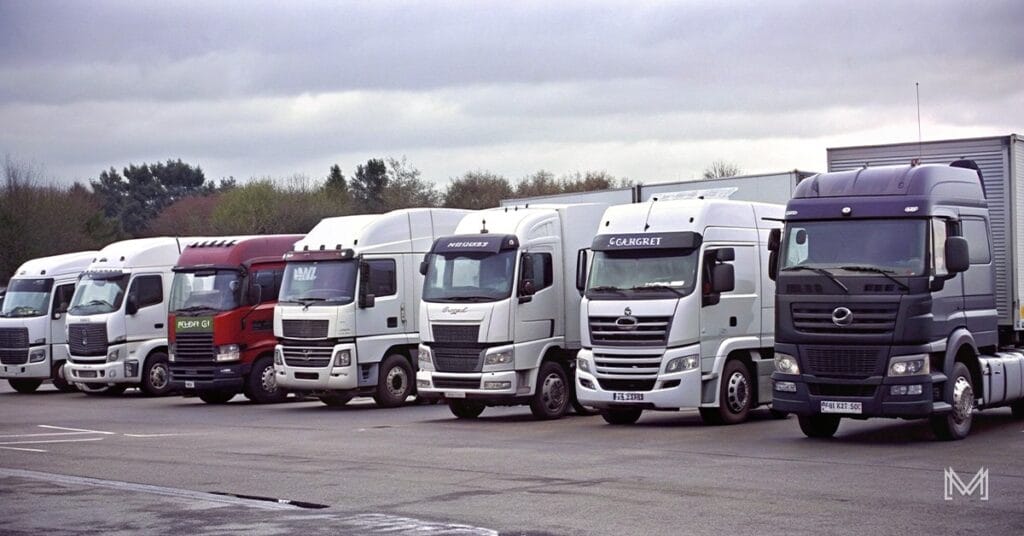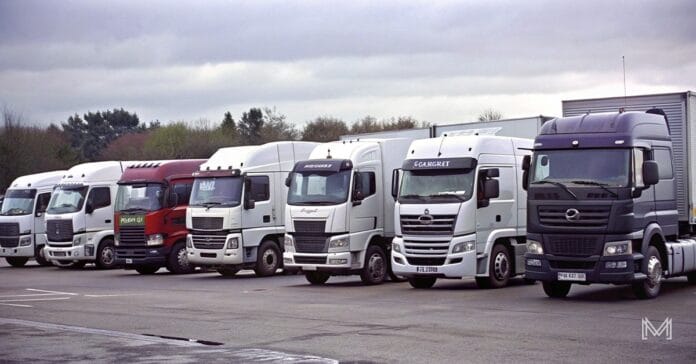Rolling in Style: What to Consider When Buying a Truck for Your Business
In the hustle and bustle of South Africa’s business landscape, reliable transportation is more than just a necessity it’s a lifeline. For many entrepreneurs, the decision to invest in a truck signifies a crucial step towards growth and expansion. However, navigating the complex world of truck purchases can be daunting, with a myriad of factors to consider. This guide aims to equip you with the knowledge and insights you need to make an informed decision, ensuring your truck What to Consider When Buying a truck for your business purchase is a smart investment that propels your business forward.
Start with a Vision: Designing Your Dream Truck
Before diving into the exhilarating world of truck models and features, it’s essential to envision the ideal truck for your business. This “design” is more than just a mental picture; it’s a blueprint for success. Think of it as a tailor-made suit, crafted to fit your unique needs.
1. The Goods You Move: The heart of your business lies in the cargo you transport. Analyse your daily operations.
- What types of goods are you hauling? Are they delicate, heavy, bulky, or a combination of both?
- What are the dimensions of your typical cargo? Get out your measuring tape!
- What are the average weights of your shipments? This will help determine the required payload capacity.
2. The Road Ahead: Consider the routes you’ll be traversing:
- Are they predominantly city streets, highways, or a mix of both? This will influence the engine size and power you need.
- Are there challenging terrains? Will you be navigating mountainous roads or rough off-road conditions?
- What’s the expected driving distance per day? Fuel efficiency and the truck’s overall durability become crucial.

3. Your Budget: This is a crucial reality check:
- What’s your overall budget for the truck purchase?
- Are you looking to finance or pay upfront?
- What are your anticipated ongoing maintenance costs? Factor in fuel, repairs, and insurance.
By meticulously considering these aspects, you’ll create a compelling vision of your ideal truck, guiding your purchase decision.
Less is More: Prioritising the Essentials
The world of truck technology is brimming with exciting features, from advanced navigation systems to built-in entertainment systems. It’s tempting to get swept up in the allure of the latest gadgets, but remember: not all bells and whistles translate to practicality. Start by prioritising the essential features that will enhance your business’s operations and safety.
1. Fuel Efficiency: In today’s economy, fuel costs are a significant consideration. Look for trucks with:
- Aerodynamic design: Streamlined profiles reduce wind resistance.
- Efficient engines: Modern diesel engines offer excellent fuel economy.
- Advanced transmissions: Intelligent transmissions optimise gear shifting for optimal fuel usage.
2. Safety First: The safety of your drivers and cargo is paramount. Look for features such as:
- Advanced braking systems such as electronic stability control, lane departure warning, and adaptive cruise control can prevent accidents.
- Visibility enhancements: Wide-view mirrors, rearview cameras, and blind spot detection systems increase driver awareness.
- Driver-assistance features such as automatic emergency braking and lane-keeping assist can intervene in critical situations.
3. Technology that Matters: Embrace technology that enhances productivity and efficiency, such as:
- GPS navigation is essential for route planning and tracking.
- Fleet management systems include real-time tracking, fuel monitoring, and driver performance data.
- Telematics: Provides data-driven insights for optimising routes, fuel consumption, and overall fleet efficiency.
4. Resist the bells and whistles: While flashy features might seem tempting, consider their actual benefits. Ask yourself:
- Will this feature directly contribute to my business operations?
- Is it essential for the safety and well-being of my drivers?
- Can I afford the cost and the potential maintenance hassle?
By prioritising the essential features, you’ll ensure your truck investment maximises your return on investment without unnecessary expenses.
The Bottom Line: Finances and Ownership
The financial implications of truck ownership are crucial. This is a substantial investment, and your choice between leasing and owning can significantly impact your bottom line.
1. Leasing: This option offers flexibility and predictable monthly payments.
| Pros | Cons |
|---|---|
| Tax benefits: Lease payments are often tax-deductible. | Limited ownership: You don’t own the truck, so you can’t customise or modify it freely. |
| Lower upfront costs: You don’t need a large down payment, which can free up capital for other business needs. | Potential mileage restrictions: Leases often have mileage limits that could impact your business operations. |
| Access to newer models: Leasing allows you to drive newer trucks with the latest features. | End-of-lease costs: You may face additional fees at the end of the lease, such as wear and tear charges. |
2. Owning: This option provides you with full control and ownership.
| Pros | Cons |
|---|---|
| Long-term value: You own the truck, and it can appreciate in value over time. | High upfront costs: Purchasing a truck requires a significant initial investment. |
| Freedom to customise: You can modify the truck to suit your specific business needs. | Maintenance responsibilities: You’re responsible for all repairs and maintenance costs. |
| No mileage restrictions: You’re free to drive as much as you need. | Depreciation: The truck’s value will depreciate over time. |
3. Finance Options: Explore the different finance options available to you:
- Bank loans: Traditional loans offer a fixed interest rate and a set repayment period.
- Equipment financing: specialised financing options for trucks with tailored repayment terms.
- Lease-to-own: A combination of leasing and owning, where you have the option to purchase the truck at the end of the lease term.
4. The Cost-Benefit Analysis: Carefully weigh the pros and cons of each option to determine the best fit for your business:
- What are your financial goals? Are you looking for short-term flexibility or long-term ownership?
- What are your cash flow projections? Can you afford the upfront costs of purchasing or the ongoing lease payments?
- What’s your tolerance for risk? Are you comfortable with the potential liabilities associated with truck ownership?
By conducting a thorough cost-benefit analysis, you’ll make a financially sound decision that aligns with your business objectives.
Exploring the Market: Trucks that Meet Your Needs
Now that you have a clear understanding of your needs and budget, it’s time to explore the vast landscape of truck manufacturers and models. There are a plethora of options available, each with its own strengths and weaknesses.
1. Pick-up trucks:
- Ideal for: light-duty hauling, construction, and small businesses.
- Pros: Versatile, fuel-efficient, and often affordable.
- Cons: Limited cargo capacity; not suitable for heavy loads.
2. Medium-Duty Trucks:
- Ideal for: delivery services, local transportation, and businesses with moderate cargo volumes.
- Pros: stronger engines, larger cargo capacity, and a balance of power and fuel efficiency.
- Cons: Can be more expensive than pick-ups; not designed for long-haul trips.
3. Heavy-Duty Trucks:
- Ideal for: long-haul trucking, mining, and businesses with heavy cargo needs.
- Pros: powerful engines, robust build quality, and high cargo capacity.
- Cons: high fuel consumption, expensive maintenance, and demanding operating conditions.
4. Specialised Trucks:
- Ideal for: Specific industries with unique requirements, such as refrigerated trucks, flatbeds, or dump trucks.
- Pros: Tailored to specific applications, optimised for maximum efficiency.
- Cons: Often expensive and may require specialised licenses or certifications.
5. Researching the Models: Once you’ve narrowed down your truck type, research specific models:
- Read reviews from other owners: Get insights into real-world performance and reliability.
- Compare specifications and features: Ensure the truck meets your requirements in terms of engine power, cargo capacity, and safety features.
- Request test drives: Experience the truck firsthand to assess its handling, comfort, and suitability for your business.
6. The Dealership Experience: When visiting dealerships, be sure to:
- Ask questions about financing options: compare interest rates, repayment terms, and lease agreements.
- Negotiate the price: Shop around and compare prices from different dealerships.
- Insist on a thorough inspection. Ensure the truck is in good condition and has no hidden defects.
By diligently researching and comparing models, you’ll find the perfect truck that meets your specific needs and budget.
The Road to Success: Maintaining Your Investment
Investing in a truck is just the first step; ensuring its longevity and optimal performance requires a robust maintenance plan.
1. Regular Maintenance: Adhering to a preventative maintenance schedule is crucial.
- Oil changes: Follow the manufacturer’s recommendations for oil change intervals.
- Fluid checks: inspect and top off fluids like coolant, brake fluid, and transmission fluid.
- Tire pressure: Maintain proper tire inflation to maximise fuel efficiency and prevent premature wear.
- Brakes: Inspect and service brakes regularly to ensure optimal braking performance.

2. Professional Inspections: Take your truck to a qualified mechanic for regular inspections.
- Pre-trip inspections: Before each trip, visually inspect for any signs of wear and tear, such as fluid leaks or tire damage.
- Annual inspections: Schedule annual inspections to ensure the truck meets safety regulations.
3. Keeping Accurate Records: Document all maintenance and repair activities.
- Track mileage: Monitor mileage to ensure you meet lease agreements or plan for future maintenance.
- Store repair receipts: Keep records of all repairs to assist with tax deductions and warranty claims.
4. Driver Training: Ensure your drivers are properly trained to operate and maintain the truck.
- Defensive driving: Train drivers in safe driving practices to reduce accidents and enhance fuel efficiency.
- Truck maintenance basics: educate drivers on basic maintenance procedures to identify potential issues early on.
By investing in regular maintenance, you’ll extend the lifespan of your truck, prevent costly repairs, and ensure its continued operational efficiency.

The Future of Trucking: Embracing Innovation
The trucking industry is undergoing a rapid transformation, driven by technological advancements and evolving market demands. Stay ahead of the curve by exploring the latest trends and innovations:
1. Electric Trucks: Zero-emission trucks are gaining traction, offering environmental benefits and potentially lower operating costs.
2. Autonomous Trucks: Self-driving trucks are still in development but hold the promise of increased safety, efficiency, and driverless operation.
3. Connectivity and Telematics: The integration of telematics systems is transforming fleet management, providing real-time data and analytics for optimised operations.
4. Alternative Fuels: Biodiesel, hydrogen fuel cells, and other alternative fuels are emerging as sustainable alternatives to traditional diesel.
5. Stay informed: Stay abreast of industry trends and technological developments by:
- Attending industry events: Connect with other businesses and learn about new products and services.
- Reading trade publications: Stay informed about the latest news and innovations.
- Joining industry associations: Network with fellow professionals and gain valuable insights.
By embracing innovation, you’ll position your business for success in the evolving trucking landscape.
Conclusion: Truck for Your Business
Purchasing a truck is a significant investment for any business, requiring careful planning, research, and a long-term vision. By thoughtfully considering your needs, prioritising essential features, and embracing responsible financial practices, you can make a smart investment that propels your business forward. Remember, the right truck is more than just a vehicle; it’s a valuable asset that can unlock opportunities for growth, efficiency, and success.
As you embark on your truck-buying journey, remember these key takeaways:
- Start with a vision: Clearly define your needs and create a blueprint for your ideal truck.
- Prioritise the essentials: Focus on features that enhance safety, efficiency, and productivity.
- Consider your finances. Weigh the pros and cons of leasing versus owning and explore financing options.
- Explore the market: research models, compare features, and request test drives.
- Maintain your investment: Implement a robust maintenance plan to extend the lifespan of your truck.
- Embrace innovation: Stay informed about emerging trends and technologies to remain competitive.
With thorough planning and strategic decision-making, your truck purchase can become a cornerstone of your business success, driving you towards a brighter future.

Frequently Asked Questions – Buying a Truck for Your Business
What are the most important factors to consider when deciding between leasing and owning a truck?
The key factors to consider are your financial goals, cash flow, and risk tolerance. If you’re looking for short-term flexibility and want to conserve capital, leasing might be better. If you prefer long-term ownership and control over the vehicle, owning is likely the better choice. Evaluate your budget, financing options, and the potential for long-term value appreciation.
How can I determine the right type of truck for my business?
Analyse your specific cargo needs, route types, and operational requirements. Consider factors like weight capacity, cargo dimensions, and terrain challenges. If you’re hauling light loads locally, a pick-up truck might suffice. For heavier loads and long-haul trips, a heavy-duty truck would be more suitable. Explore specialised truck options if you have unique industry needs.
What are some essential safety features to prioritise when buying a truck?
Safety is paramount. Look for features like advanced braking systems (ABS, electronic stability control), enhanced visibility (wide-view mirrors, rearview cameras, blind spot detection), and driver-assistance technologies (automatic emergency braking, lane keeping assist). These features can help prevent accidents and ensure the well-being of your drivers and cargo.
What are some cost-effective ways to maintain my truck and extend its lifespan?
Adhere to a regular preventative maintenance schedule, including oil changes, fluid checks, tire pressure maintenance, and brake inspections. Schedule annual inspections with a qualified mechanic. Train your drivers on basic maintenance procedures and promote safe driving practices. Keep accurate records of mileage, repairs, and maintenance activities.
How can I stay updated on the latest trends and innovations in the trucking industry?
Attend industry events, read trade publications, and join industry associations to network with professionals and learn about emerging technologies. Explore the potential benefits of electric trucks, autonomous driving systems, alternative fuels, and telematics advancements. Staying informed will help you adapt to the changing landscape and maintain your competitive edge.


